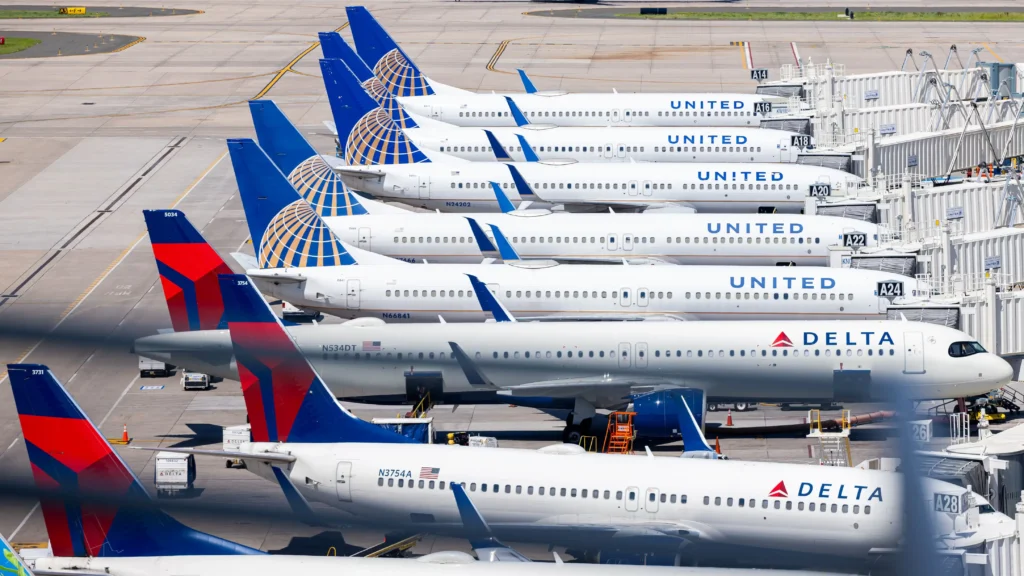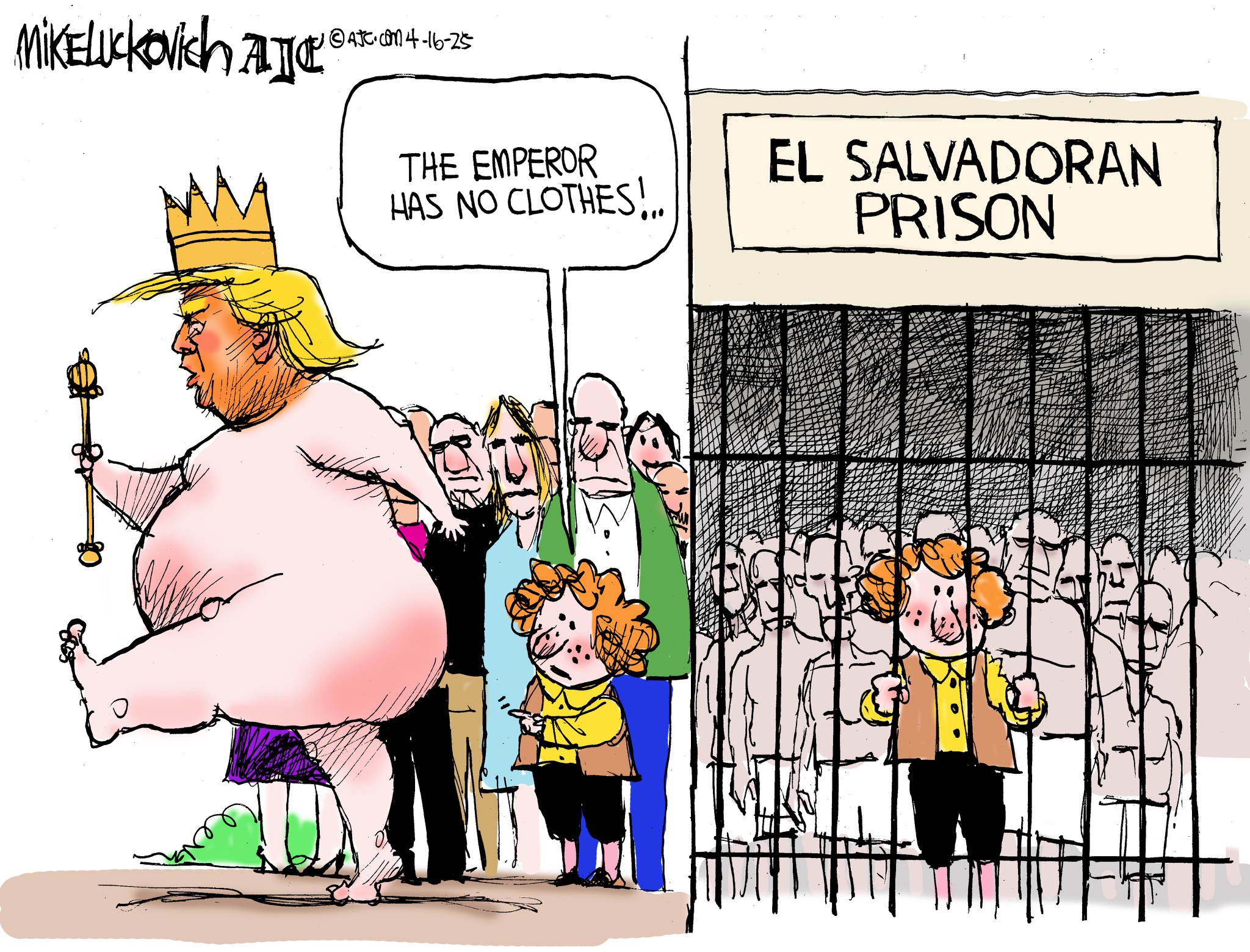
SAN FRANCISCO- Chicago-based United Airlines (UA) CEO Scott Kirby offered measured praise for President Donald Trump’s controversial new tariff policy, describing the goals behind it as “laudable” despite potential economic concerns.
During a White House Rose Garden event, Trump announced his “Liberation Day” tariff plan that would impose a 10% baseline tariff on all imports with higher rates for specific countries, set to take effect April 9, 2025.
 Photo: Scott Kirby
Photo: Scott KirbyUnited CEO Supports Trump Tariff
Scott Kirby’s unexpected comments came during a United Airlines corporate event at San Francisco International Airport (SFO). While discussing United’s commitment to creating sustainable middle-class careers for employees, Kirby characterized Trump’s policy as representing a “genuine desire to create more careers” within the United States.
“Some may disagree with the way and tactics, but the goal I think is a laudable one,” Kirby stated during his remarks. When approached afterward by Matthew Klint from Live and Lets Fly, he admitted he hadn’t planned to address the tariff policy – the comments emerged spontaneously, demonstrating Kirby’s reputation for candid communication.
These statements appear contradictory to United’s business interests, as the airline maintains extensive global operations that benefit from robust international trade.
Economic analysts note that Kirby himself has previously emphasized how airline revenue closely tracks GDP growth, making his support for policies that economists predict could reduce GDP by up to 200 basis points particularly perplexing.
The airline’s apparent political adaptability may reflect pragmatic business considerations rather than economic conviction, flagged ViewfromtheWing.
With former Obama press secretary Josh Earnest serving as United’s Executive Vice President, the carrier maintains political connections across administrations. United previously donated $1 million to Trump’s inauguration, demonstrating its efforts to maintain positive relationships regardless of which party holds power.
Some analysts suggest Kirby’s unexpected endorsement may represent strategic positioning to secure favorable treatment from the current administration rather than genuine economic policy alignment, particularly as the tariffs face potential legal challenges under the Supreme Court’s major questions doctrine.
ALSO READ: United Airlines CEO Scott Kirby Salary and Compensation
 Photo: Trump White House Archived
Photo: Trump White House ArchivedUnderstanding New Tariff Structure
President Trump’s tariff policy introduces a complex system of trade barriers that could significantly impact global commerce. The plan establishes a 10% baseline tariff on all imported goods, with substantially higher rates for certain nations:
- European Union: 20%
- China: 54%
- Vietnam: 46%
- Japan: 24%
- Taiwan: 32%
Trump framed the policy as a response to what he describes as decades of unfair trade practices that have harmed American workers and industries.
According to the president, these measures aim to protect domestic manufacturing and reduce the U.S. trade deficit.
The tariff announcement triggered significant market turbulence with the S&P 500 plunging 5%, NASDAQ dropping 6%, and United Airlines’ stock specifically falling over 15% as investors responded to potential economic impacts that could threaten global trade and air travel demand.
Policy Inconsistencies Undermine Stated Goals
Economic and trade policy experts have identified numerous contradictions within the tariff structure that challenge its stated reciprocity objectives:
- Higher tariffs imposed on countries with which the U.S. maintains trade surpluses (Australia, UK)
- Substantial tariffs applied to nations that have reduced or eliminated their own tariffs on American goods
- Strategic relationships potentially damaged with Vietnam and other countries positioned as alternatives to Chinese manufacturing
- Implementation methodology based on dividing trade deficits by imports rather than reflecting actual tariff rates
 Photo: Denver Airport
Photo: Denver AirportPotential Impact On Aviation Industry
The aviation sector maintains significant exposure to global trade dynamics, making it particularly sensitive to tariff policies. For airlines like United that operate internationally and rely on equipment manufactured worldwide, the long-term implications remain uncertain.
United Airlines depends on both domestic and international markets for revenue generation. While potentially beneficial for domestic operations through increased American manufacturing, the tariffs could simultaneously drive up costs for aircraft parts, maintenance supplies, and other imported necessities.
Industry analysts note that establishing good relations with the current administration represents prudent business strategy for carriers dependent on federal regulatory frameworks. However, this pragmatic approach must be balanced against the broader economic concerns that tariff policies might trigger.
Stay tuned with us. Further, follow us on social media for the latest updates.
Join us on Telegram Group for the Latest Aviation Updates. Subsequently, follow us on Google News
Delta Air Lines Sees Positive Impact in Donald Trump Presidency
The post United CEO Praised Donald Trump’s New Tariff Policy appeared first on Aviation A2Z.


















